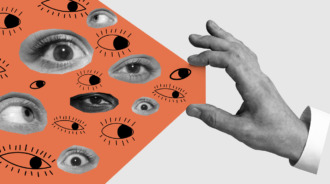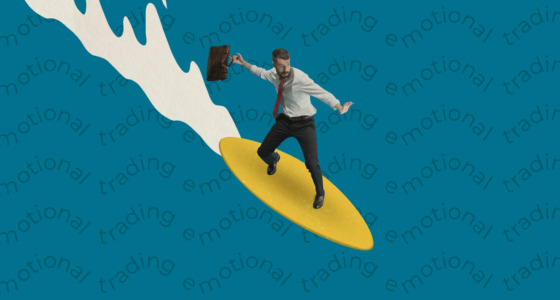

There is no shortage of instructions and textbooks on trading. You can always subscribe to expert advice or use social trading services, since trading has become very popular throughout all social strata and age groups. If you’d like to try this way to earn a little extra, you should be aware of the psychological traps that few manage to avoid. We’ll discuss ways to master trading psychology and help you on the path to success.
Greed
Greed has nothing to do with the desire to earn by trading. It is a complex emotion associated with other strong feelings and beliefs. Greed can take on many different forms. For instance, instead of opening a small number of trades in line with their own money management rules, a trader may feel an irresistible desire to chase profits and mindlessly increase the position size. Or instead of using a small leverage, they want to significantly increase it, trying to earn more.
Greed can lead to over-trading, and that’s a way to easily lose money. A trader is much better off opening several trades per day, focusing on the quality of their execution, not on the final result of each trade. In this case, the quality of transactions will typically translate into a solid profit.
Fear of losing money
This trap of day trading psychology lies in wait from the very start, as you are deciding to start trading. Constant thoughts about spending, failure, lost money will prevent you from installing a trading platform, then from switching to a real account from a training one. To get rid of this natural fear, psychologists advise to keep these simple notions in mind:
- Losses are business costs, just like fuel for your car!
- Expenses are normal – as long as profits are greater!
If you focus on losses, you can lose your perspective. Fear is relieved by consistency and by strictly following your own rules. Don’t risk the last of your money, reach a positive balance, and only then move on to financially risky activities.
Lack of discipline
Discipline is considered the key trading secret of success. Trading is a serious activity and requires discipline and positive habits to stand a chance of success. Experienced traders know that psychology and trading discipline are integral to making money in this field. However, many novice traders aren’t concerned with the right mindset. Instead, they focus on strategy and desire to make a ton of money.
An undisciplined trader:
- Violates his own trading strategy, trades erratically. Spends the deposit unreasonably.
- Enters into risky deals.
- Is impatient, likes to swing deposits, trying to double or triple the initial capital.
- Gives in to excitement and other emotions. Gets carried away.
- Is unable to engage in self-education. He reads through the basics and tries to apply them at once. Always counts on some trade secret to get good returns.
- Too lazy to keep a trading diary and analyze his trading strategies.
- Enters and exits the market randomly.
- Is unable to stop. Always wants to recoup his losses.
If you recognize yourself in the above list, you need to get back to following your trading rules and analyzing your trading behavior.

Reversing decisions and indecision
Transactions closed too early or too late are the biggest misfortune of novice traders. It’s very important to learn to tell the difference between actual market movements and random fluctuations, so as not to lose time and money.
In a similar vein, there may be confident market signals, but the tech analysis graph or an expert don’t advise to open a transaction. As a result, the market goes in the right direction, the trader opens a deal in pursuit, but doesn’t get the money that he could have originally made. Chaotic trading, repetitions and catch-ups are visual signs of indecision.
The secret in the same discipline. Strategies only work if they are implemented unconditionally. And indecision in the market is as dangerous as fear on the battlefield.
Dependence on someone else’s opinion
Even before a trader starts working, everyone will be saying that nothing will work out and give a ton of examples. That’s human psychology – in this case, both sides fall into the trap. Advisors are simply afraid to take responsibility for their actions and end up being blamed for failure, even indirectly. It’s always easier for them to try and stop you from a risky step. That’s why, when trying to publish an idea, the author will inevitably encounter negativity.
The general reasons for excessive dependence on the opinions of others are well-known to psychologists:
- Excessive sensitivity. Weakness, lack of willpower to resist external pressure.
- Low self-esteem that may stem from childhood when one’s initiatives were suppressed.
- The desire to attract attention may result from a lack of attention in childhood.
- Lack of critical thinking, knowledge and experience.
You need to understand that a trader works alone, and is personally responsible for their actions. Your own opinion should always take precedence, even though you should take objective factors into account. Experience is only gained with practice.
The first step to solving problems is recognizing them. Once you understood exactly what psychological barriers prevent you from becoming an active and successful trader, it is easier to get rid of them.









